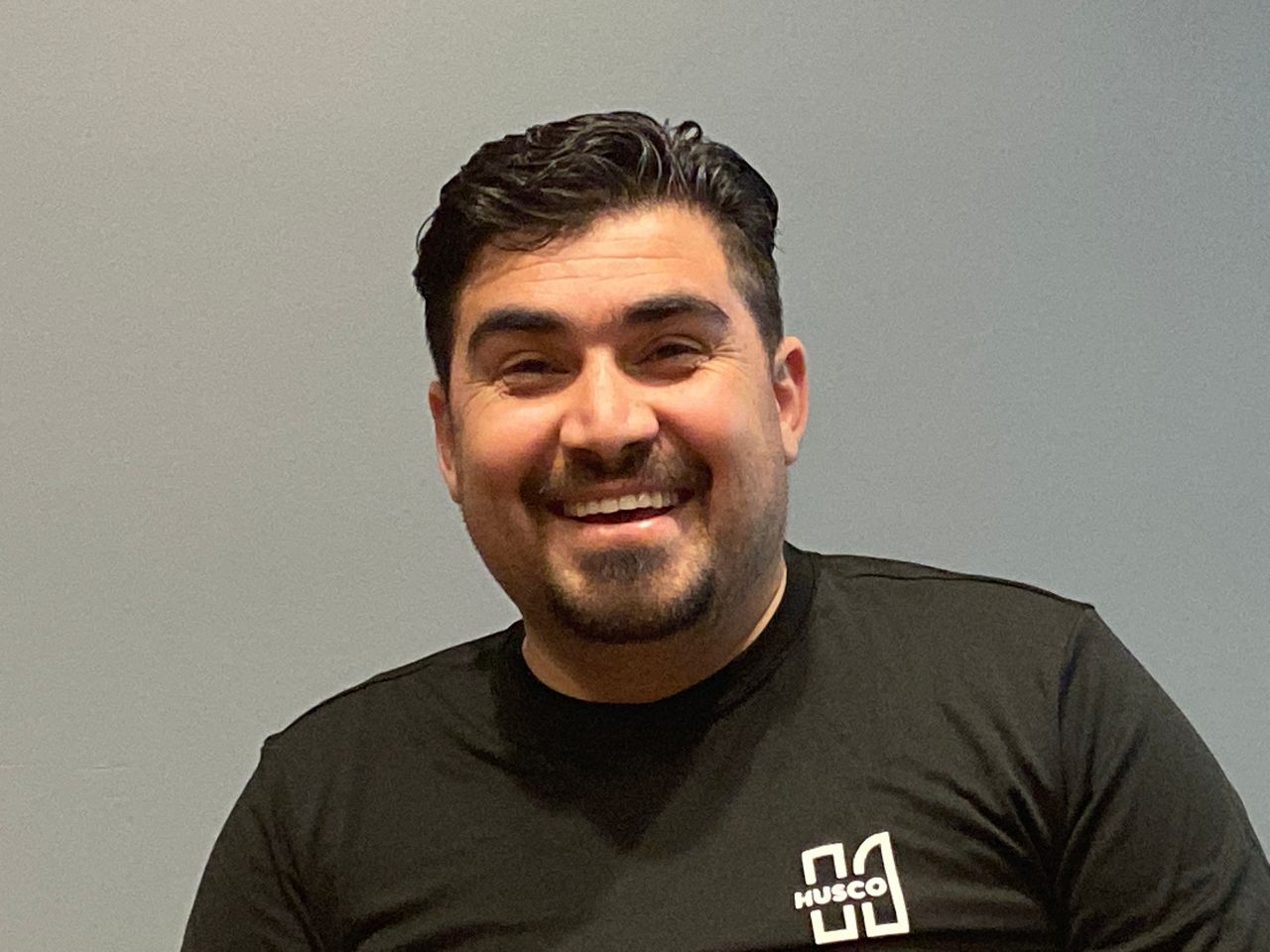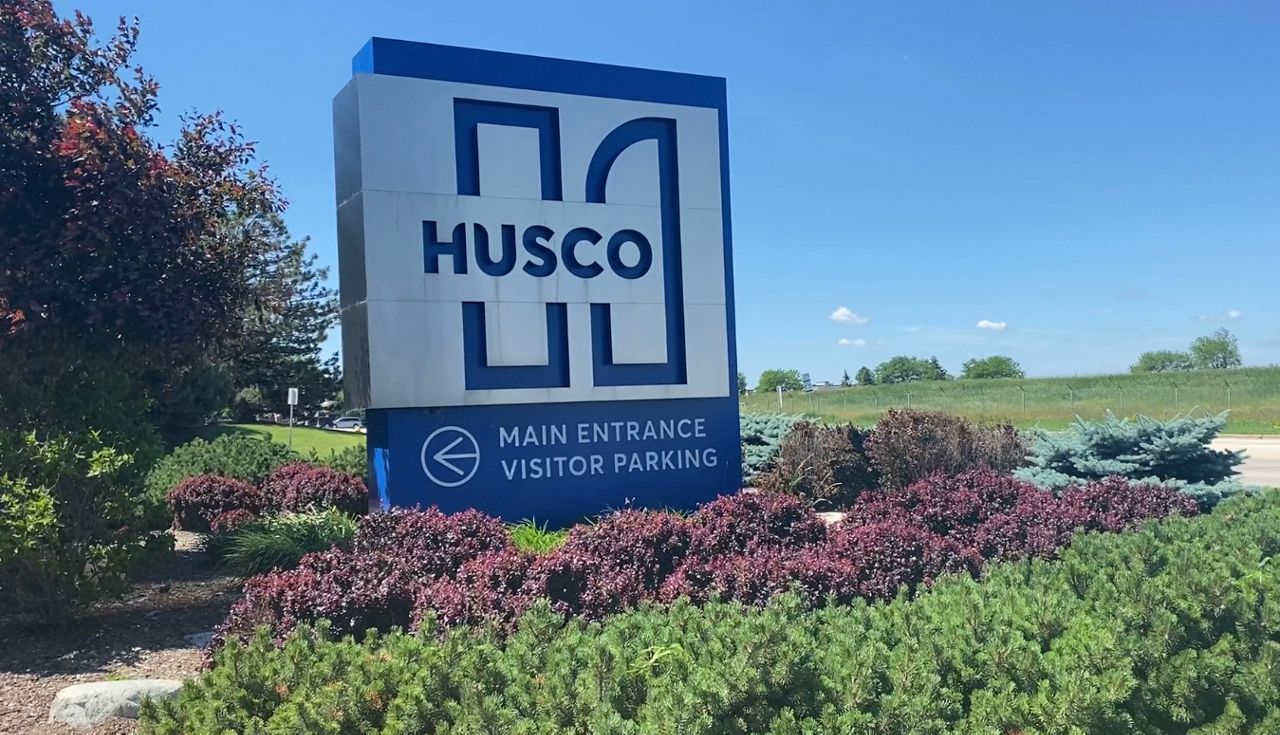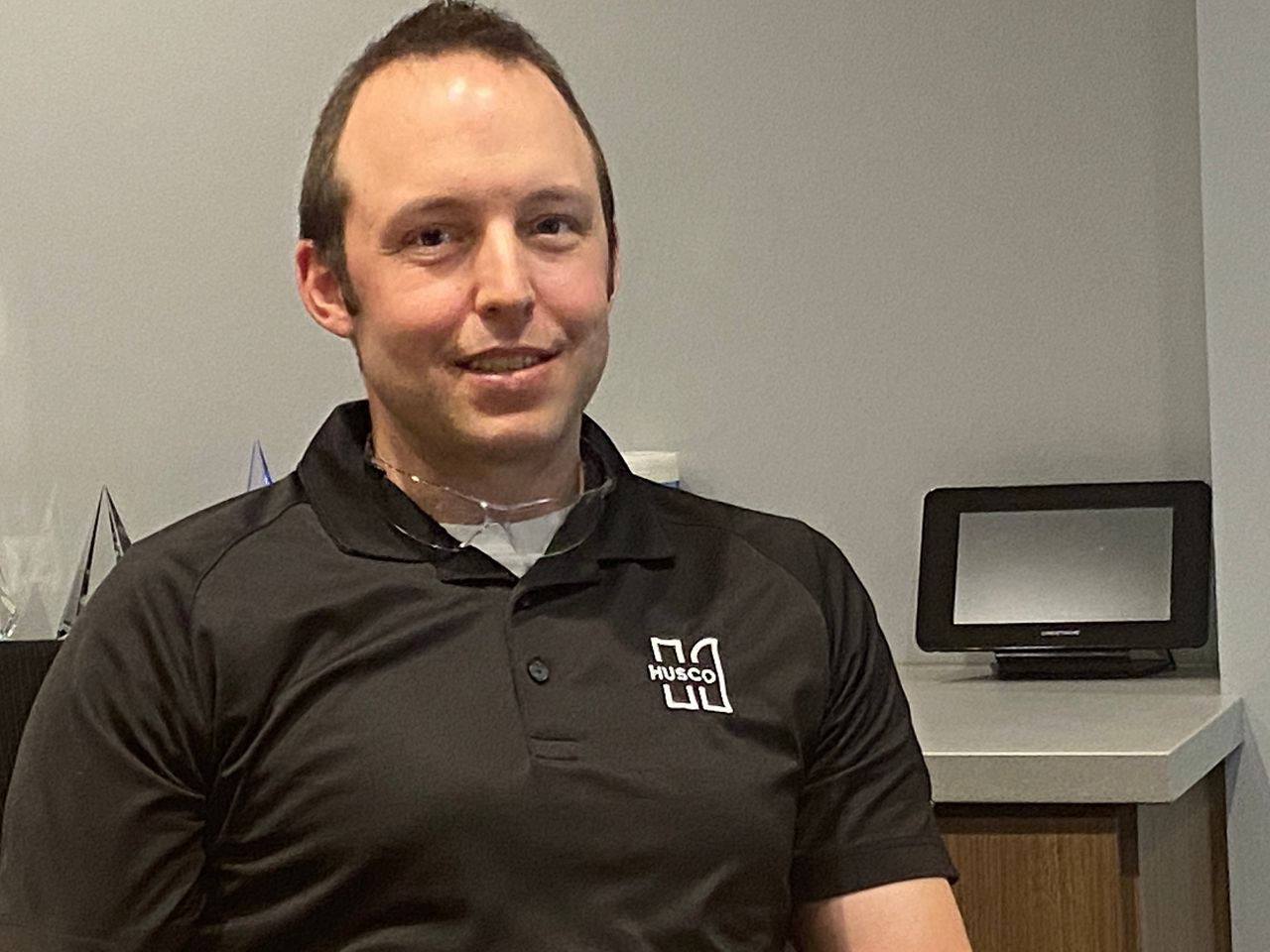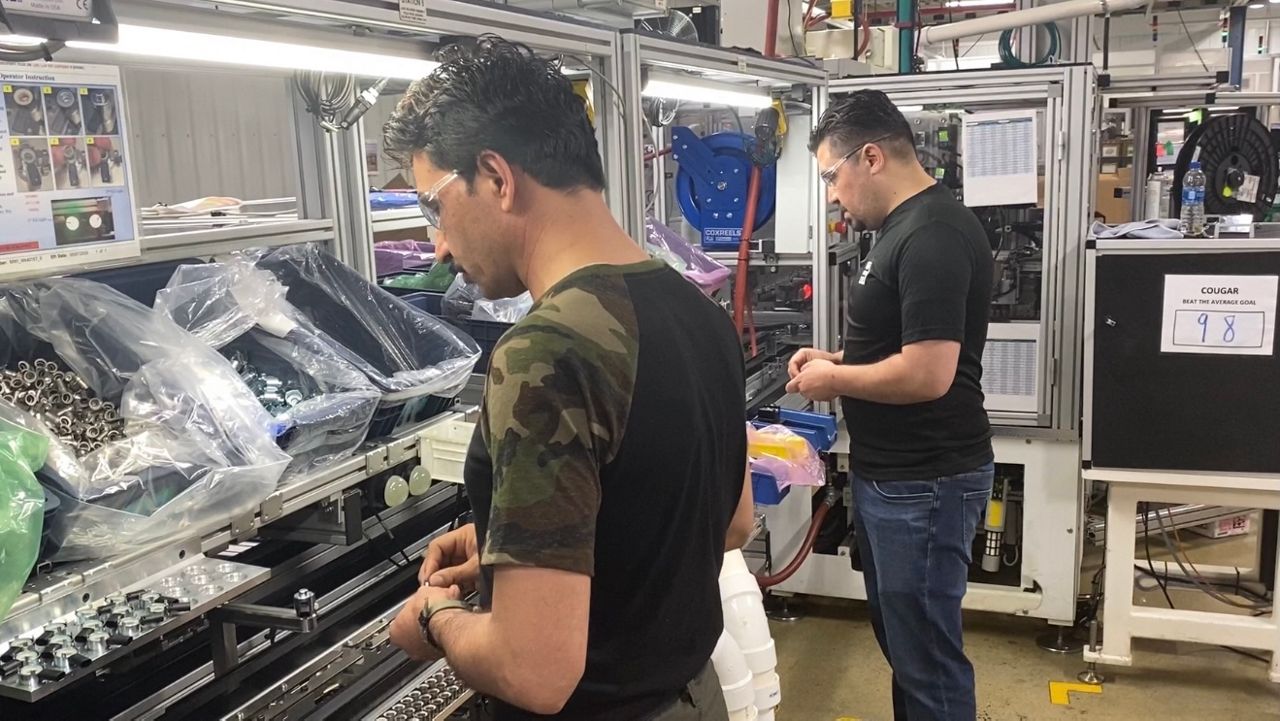WAUKESHA, Wis.— He has that 1,000-watt smile, and it’s easy to believe it represents someone living the good life. You can feel the joy.
But the twinkle in Maazullah Dargai’s eyes also provides a curtain to what is churning inside; fear, concern, worry and all those other feelings that come in the anxiety basket.
“So, I’m the lucky guy,’’ Dargai says, a lot.
He is most certainly that. Less than a year ago, Dargai was in his native Afghanistan and was hunted by the Taliban. After the United States withdrew its military presence last August, ending a 20-year war that began after the terrorist attacks on Sept. 11, 2001, Dargai, and thousands of other Afghans who aided the U.S. military became targets of Taliban forces in search of retribution.
But he made it out and arrived in Washington, D.C., in September. Then, he went to Camp Atterbury in Indiana before coming to Milwaukee in January with several of his fellow Afghans.

“One is hell,’’ Dargai said of the country he left, “and the second one is heaven.’’
Heaven was filled with sights and sounds he had never known before, including one that felt especially pleasant: Open arms.
Working with Lutheran Social Services and Manpower, Husco, a privately owned Waukesha company specializing in hydraulic and electro-mechanical control systems, reached out its hand.
“We recognize this is the right thing to do,’’ said Mark Dreikosen, director of operations at Husco.
Husco has not only provided jobs for about 35 Afghans, most which did not speak any English, but has provided translation, transportation, catered meals to celebrate Ramadan and has built a multi-faith meditation space and provides breaks for the refugees to pray throughout the day.
“So I’m the lucky guy,’’ Dargai says again, “to find a job at Husco with great people, with loving people.’’
He may have left hell, but hell remains a central part of his life. Dargai’s wife, six children and his father remain in Afghanistan, and the Taliban have knocked on their door, repeatedly, asking where Dargai is.
“When I go home and go to bed,’’ said Dargai, dropping his head in his hand, “and then, I’m thinking about my family. ‘Oh God, what can I do for my family?’”
The hurdles Husco faced were plentiful, and high.
So why do this?
“In doing it, it is helping us because we’re short, a lot of positions, and we needed the help,’’ said Dreikosen. “And there are a lot of these guys, they’re very motivated and driven individuals. They’re very smart individuals. They just need the right kind of tools to be able to succeed. So, finding ways to knock down those barriers and make sure that they can be here and be successful is the right thing for us and for them.
“And we’ve recognized the benefit of being able to fill all of our roles, and now they’re making money and living better lives and getting acclimated in the U.S. and that’s a win-win for everybody. So, in terms of a decision, there really wasn’t much of a decision. It was more of a discussion of what are we going to do to make this happen.’’
Husco has been down this road before. Years ago, they hired a group of refugees from Myanmar following a humanitarian crisis in that country. Like their new Afghan employees, they did not know how to speak English either.
“I think it takes special companies and special people,’’ said Mary Flynn, program manager of refugee resettlement at Lutheran Social Services.
“Is it unusual? Yes. Has it happened before? Yeah. Every once in a while, we run into an employer that gets it, jumps in with both feet and realizes that they have tapped into a formidable and effective employment pool. And that’s what happened.’’
Despite the trauma in their lives, the language barriers and an unfamiliar culture, refugees only receive limited resources when they arrive.
“A lot of our responsibility has to do with setting in place mechanisms that support future self-sufficiency and stability,’’ Flynn said. “And that includes employment. Refugees want to work when they arrive. That’s the very first question that people ask about is, ‘How soon can I start working?’
“And refugees do not get handouts. They get some very basic governmental services to start with, but then, they are responsible for getting on their own two feet as soon as possible, and kind of creating their own futures just like any other American. And so, having an opportunity like Husco, which offered a very welcoming environment, matched with an eager workforce; it was kind of a synergistic situation.’’

One of the first things Husco did for its Afghan employees is reformat their work instructions. Not only did they need to be translated into the Pashto language, but it had to be done where they read from right to left.
They also set up their work stations, so each had two sets of instructions, one in Pashto and one in English, with the idea it would make it easier to perform their job and they would begin to pick up their new language.
“We’ve seen a lot of that,’’ said Dreikosen.

He referenced an Afghan employee named Habib, who could not speak any English when he started working at Husco earlier this year.
“He used some of those instructions, and I know he’s been working on English with Maazullah, and just experiencing that in the community, and now we can speak to each other in English,’’ Dreikosen said. “And he’s learning more and more and it’s just been a couple of months. He’s learned a lot more English than I’ve learned Pashto.’’
They’ve also worked with Manpower to provide transportation for the refugees to and from work.
And as Dargai can attest, the support he’s felt from the day he walked through Husco’s doors has proven invaluable.
“When I come inside of the shop, I see all the lines, all the stations,’’ said Dargai. “‘Wow,”’ I said, ‘I never seen before, these kinds of stations, these kinds of lines.’ I said, ‘Oh, Maz, you never do this job.’ It was all completely different work inside the shop floor. So, ‘OK,’ I said. ‘Let’s try.’
“And then, I find the great people, the loving people. The supporters; Sir Mark told me, ‘Hey, you can do that. Just do and try your best. You will do that.’ And when I see my support, then I say, ‘OK, let’s try.’ And right now, thanks for all my team.’’
Dargai said life was good when the U.S. military occupied his country.
They built roads, schools and hospitals — to varying degrees of success — but Dargai said the majority of his countrymen were happy, free from the rule of the Taliban. In 2012, the U.S. Army hired him as an IT professional.
“The people was happy,’’ he said. “Everybody had work, job, everything.’’
The Army gave him a vehicle, and he could move around freely as he kept two small flags in his car, one from the U.S. and one from Afghanistan.
“But when the U.S. decided to leave Afghanistan,’’ he said, “Oh my God, that was the day everything is gone.”
Dargai received a call from his supervisor, who said he had three days to complete some detailed IT work.
“And I asked, ‘Just why? What’s happening, sir?’’’ said Dargai. “He said, ‘Just only do this. Don’t ask about anything.’
“Then, after three days, he called me from a different number. He told me to get ready and go to HKIA (Hamid Karzai International Airport) and be careful. Say nothing to anybody. Just go to airport. That’s all. I will tell you more if you go to airport.”’
He did. He wanted to see his family, who lived just north of Kabul, first. But information he gathered from Facebook told him the Taliban was already in control of much of the city. There would be no goodbyes.
“And when I see the huge people rush (HKIA), a bad situation,’’ he said. “Oh my God, that was …. what can I explain? That was bad memories in my life. Almost four or five days sleep at the airport. No nothing for eat, nothing for drink.”
Then, the U.S. military showed up, and they punched his ticket to leave the country.
“‘Again,”’ he said he thought to himself, “‘the sun has come out.”’
But not for everyone.
“So right now, my family is on risk,’’ he said. “Every time (the Taliban) come to my home, they ask for my father. ‘Where’s his child?’ Where’s his car? Where’s his weapons. Where’s your son?”’
Dargai said he knows the Taliban has sanctioned his killing from multiple letters he has received.
“They said he worked with the U.S. Army, and he is not a Muslim because he worked for the U.S. Army,’’ he said of the letters. “So Islam gives us approval to kill this guy.’’
That may sound like something right out of crazy town, but it’s not.
“That is absolutely real,’’ said Flynn. “Absolutely real. All of the Afghans that have come to the United States through this evacuation effort interacted or interfaced with U.S. military, government, or corporations in some way. These are the people that made it possible for the U.S. to have a presence there, as well as for businesses to operate there. Their contributions cannot be understated.
“They have given their all in the hopes that their work would support democracy. And when things changed, they literally had to run for their lives and those threats are very real and they are acted upon. Those are not idle threats.’’
Dargai said he is most concerned for the safety of his wife and four daughters. He said his father, who he can speak to occasionally, continues to hold firm.
“My father told them, ‘I don’t know where is my son,’” Dargai said. “‘I also (want to) find my son. Where is he? I don’t know. He is in Pakistan, Tajikistan, Iran, where is he?’ And he completely said, ‘I don’t know where is my son.’”
Dargai lives for the day when he will be reunited with his family. But no one can predict when that might happen.
“It’s really based on individual situations, unfortunately,’’ Flynn said. “The situation inside Afghanistan that would allow for processing of these applications, and interviews that are needed by the United States Citizenship and Immigration Services, to be able to bring them over, are going to be severely impacted by the situation in Afghanistan. This is particularly sad. We do see this with other refugee populations who had to leave their families behind. But particularly in Afghanistan, it is very uncertain and there are really very few nongovernmental organizations working inside Afghanistan at this time.
“So for USCIS to actually do processing that would allow them to travel to the United States, that is really impacted by the situation right now. So not only have these men gone through the trauma of having to run for their lives; they are hoping they can bring their families as soon as possible. When that will be is a great unknown.’’
Dargai carries on as best he can, grateful for the opportunity Husco has provided and focusing on laying down a foundation for his family.
But until that day comes when they are next to his side, anxiety will be his constant companion.
“Right now, my child, they are not going to school,’’ he said. “My daughters, they are staying at home, so I’m really worried about that. They are not going to school there; they stay on village. OK, so right now, I’m not just like, full happy, completely. So, right now, I’m worried about my family. I’m working. I try hard, working and make a future. So, right now, I can’t say anything. So, I’m here, my family is there. So, it’s hard. It’s hard.
“When my family, my child, my wife, they come here to U.S. in Milwaukee, Wisconsin, then we start from zero, our life.’’
Story idea? You can reach Mike Woods at 920-246-6321 or at: michael.t.woods1@charter.com



